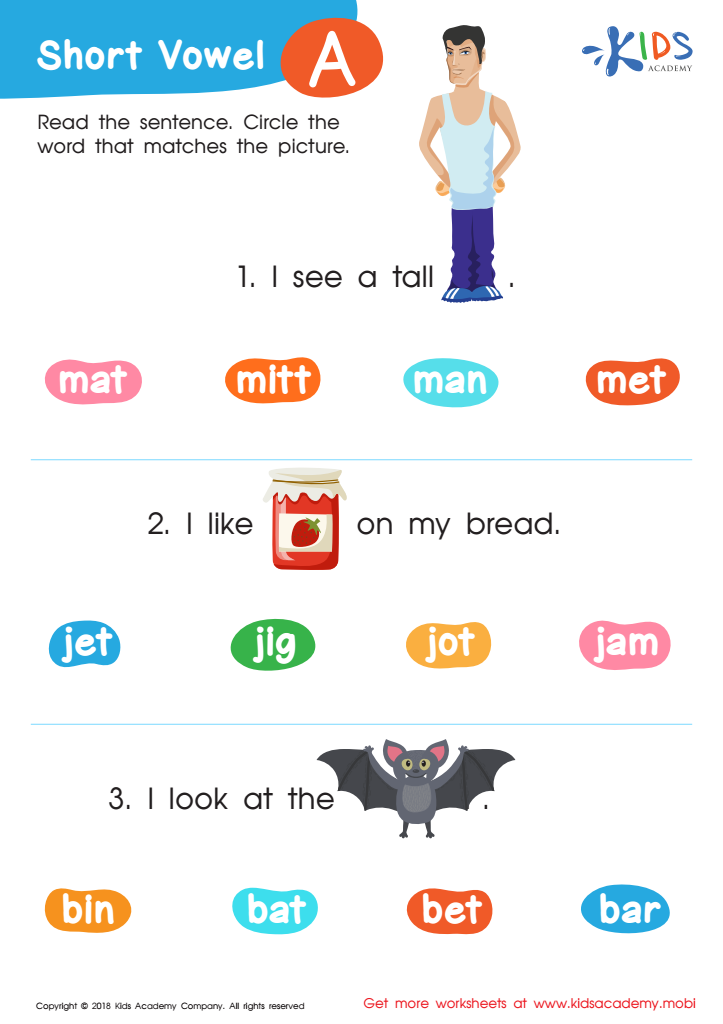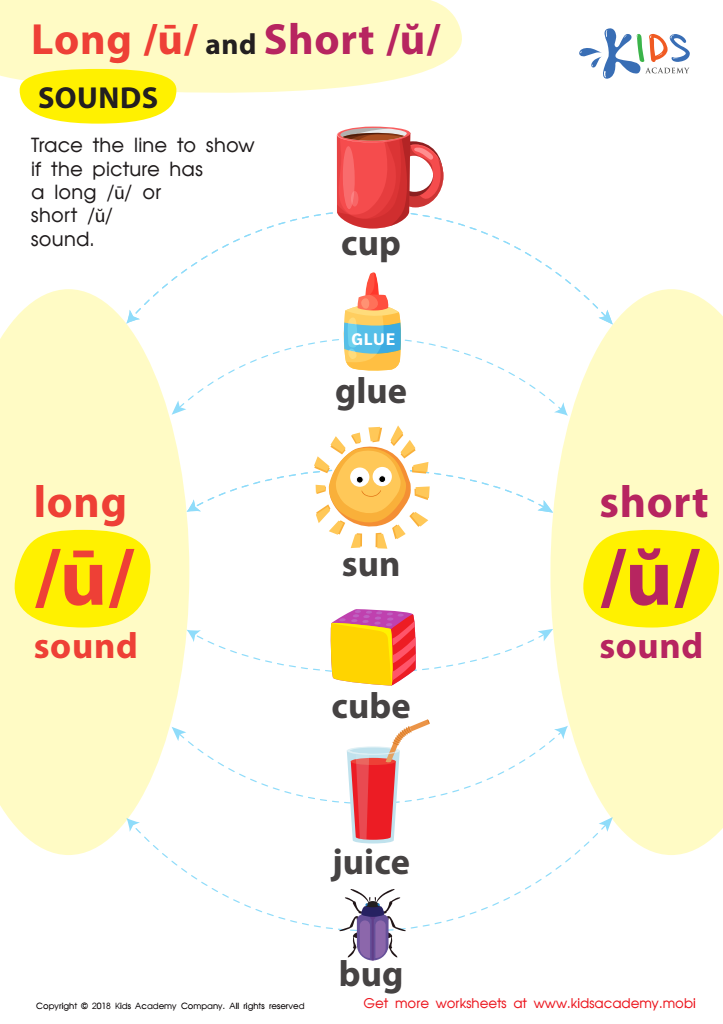Vowel Recognition Normal Letter Recognition Worksheets for Ages 7-8
4 filtered results
-
From - To
"""Vowel Recognition: Normal Letter Recognition Worksheets for Ages 7-8""" are specially designed to bolster reading skills through targeted alphabet exercises. These engaging worksheets help young learners identify and distinguish between vowels and other letters, laying a strong foundation for effective reading and writing. Developed for children ages 7-8, the worksheets offer fun and educational activities that enhance letter recognition, phonemic awareness, and vocabulary. Each worksheet is crafted to make learning enjoyable, ensuring kids remain engaged while mastering essential language skills. Ideal for both classroom use and at-home practice, these worksheets support significant milestones in early literacy development.


Short Vowel /a/ Worksheet


Short Vowels /e/, /i/, and /u/ Worksheet


Reading: Long U and Short U Sounds Worksheet


Long Vowel Maze /o/ and /i/ Worksheet
Vowel recognition and normal letter recognition are fundamental skills for children aged 7-8, serving as building blocks for literacy and academic success. During these formative years, children transition from basic letter recognition to reading fluently, making it crucial for parents and teachers to support and foster these abilities.
Understanding vowels is vital because they form the core sounds of words, aiding in pronunciation and comprehension. Mastery of vowel sounds also enables kids to decode unfamiliar words, enhancing their reading accuracy and speed. Moreover, recognizing patterns in vowel placement empowers children to spell correctly, support writing proficiency, and boost their confidence in both oral and written communication.
Effective vowel recognition complements normal letter recognition, creating a comprehensive understanding of the alphabet that is essential for reading fluency. Research shows that children who struggle with these foundational skills are more likely to experience difficulties in reading comprehension, which can impact overall academic performance.
Therefore, parents and teachers must prioritize activities that reinforce these skills—such as phonics games, flashcards, and reading practice—to ensure children develop a strong literacy foundation. Investing time and resources into vowel and letter recognition at this sensitive stage can set the groundwork for lifelong learning and success.
 Assign to My Students
Assign to My Students
















